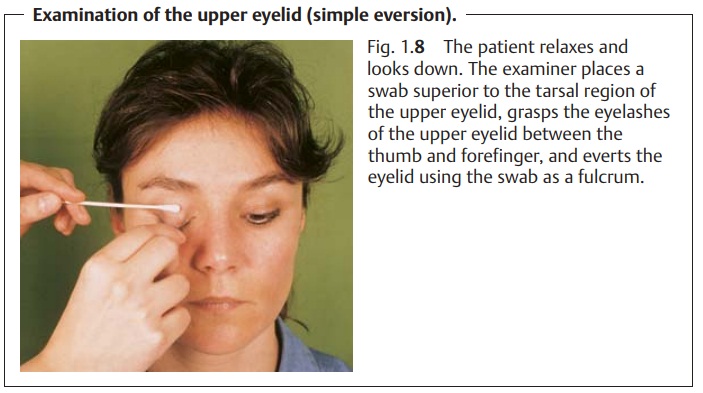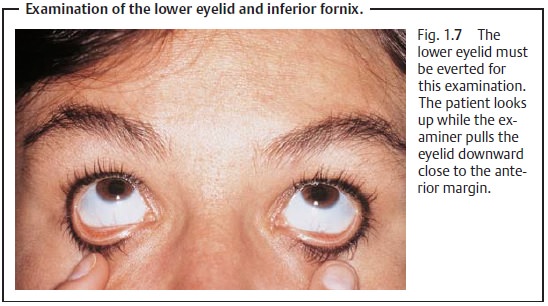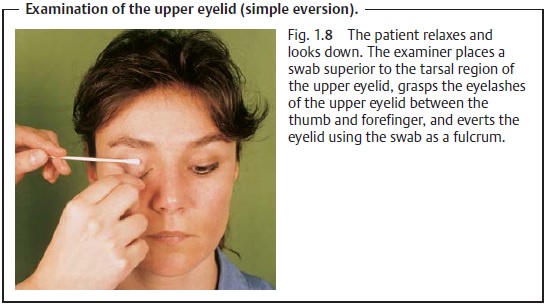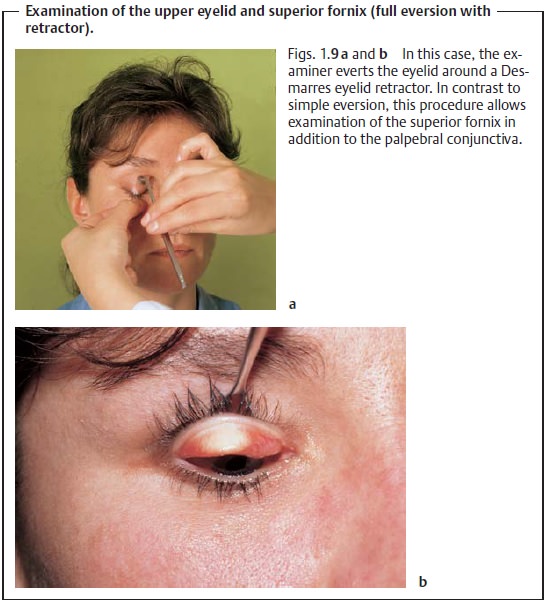Chapter: Ophthalmology: The Ophthalmic Examination
Examination of the Conjunctiva

Examination of the Conjunctiva
The conjunctiva is examined by direct
inspection. The bulbar conjunctiva is directly visible between the eyelids; the
palpebral conjunctiva can only be examined by everting the upper or lower
eyelid. The normal conjunctiva is smooth, shiny, and moist. The examiner should
be alert to any reddening, secretion, thickening, scars, or foreign bodies.
Eversion of the lower eyelid.The patient looks up while the examiner pullsthe eyelid downward
close to the anterior margin (Fig. 1.7).
This exposes the conjunctiva and the posterior surface of the lower eyelid.

Eversion of the upper eyelid.Simple eversion(Fig. 1.8). The patient is asked tolook down. The
patient should repeatedly be told to relax and to avoid tightly shutting the
opposite eye. This relaxes the levator palpebrae superioris and orbicularis oculi
muscles. The examiner grasps the eyelashes of the upper eyelid between the
thumb and forefinger and everts the eyelid against a glass rod or swab used as
a fulcrum. Eversion should be performed with a quick levering motion while
applying slight traction. The palpebral conjunctiva can then be inspected and
cleaned if necessary.

Full eversion with retractor.To expose the superior fornix, the upper eyelid isfully everted
around a Desmarres eyelid retractor (Figs. 1.9a and b). This method
is used solely by the ophthalmologist and is only discussed here for the sake
of completeness. This eversion technique is required to remove for-eign bodies
or “lost” contact lenses from the superior fornix or to clean the conjunctiva
of lime particles in a chemical injury with lime.

Blepharospasm can render simple and full
eversion very difficult especially in the presence of chemical injury. In these
cases, the spasm should first be eliminated by instilling a topical anesthetic
such as oxy-buprocaine hydrochloride eyedrops.
Related Topics